 The Fifth National Climate Assessment is federally mandated by Congress and released every four years to serve as the foremost review of research on the current and future impacts of climate change in the United States.
The Fifth National Climate Assessment is federally mandated by Congress and released every four years to serve as the foremost review of research on the current and future impacts of climate change in the United States.
In this episode of the Water for Food Podcast, DWFI Director of Communications and Public Relations Frances Hayes discusses key findings of the report with three of its co-authors. DWFI Faculty Fellows Andrea Basche and Tonya Haigh co-authored the Northern Great Plains chapter, which includes Nebraska. DWFI Director of Water, Climate and Health Jesse Bell, who leads the Water, Climate and Health Program at the University of Nebraska Medical Center, co-authored the chapter on human health. The authors share their take on regional differences related to climate change, who is most affected by its impacts and what bright spots exist.
View the full assessment here. Find webinars on each topic hosted by the U.S. Global Change Research Program here.
Listen here or subscribe on your favorite podcast platform:
DWFI podcast episode 34 57:53
The Robert B. Daugherty Water for Food Global Institute (DWFI) at the University of Nebraska was founded with the mission to have a lasting and significant impact on achieving more food security with less pressure on scarce water resources by conducting scientific and policy research, using the research results to inform policy makers, and sharing knowledge through education and communication.
How to subscribe:


 AgBiome
AgBiome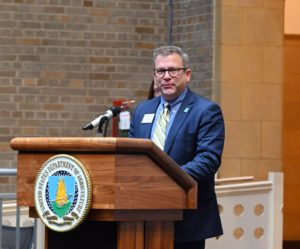 The
The 
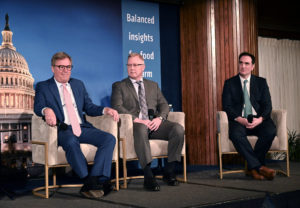

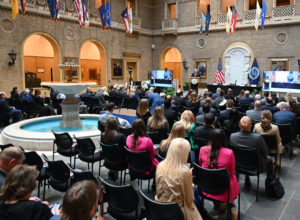 The 51st
The 51st 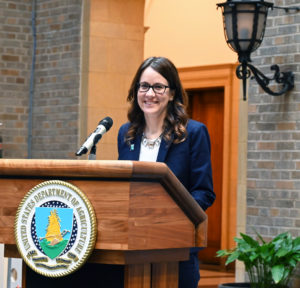 Ag Day is organized by the Agriculture Council of America (ACA), which is a nonprofit organization composed of leaders in the agriculture, food and fiber communities.
Ag Day is organized by the Agriculture Council of America (ACA), which is a nonprofit organization composed of leaders in the agriculture, food and fiber communities.  A panel of students representing four different agricultural youth organizations spoke on the topic of “Agriculture: Growing the Climate for Tomorrow.”
A panel of students representing four different agricultural youth organizations spoke on the topic of “Agriculture: Growing the Climate for Tomorrow.” This week’s
This week’s 
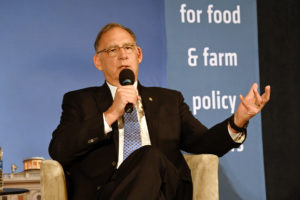 The Ranking Member and Chair of the Senate Agriculture Committee are still holding out hope for a new farm bill this year.
The Ranking Member and Chair of the Senate Agriculture Committee are still holding out hope for a new farm bill this year.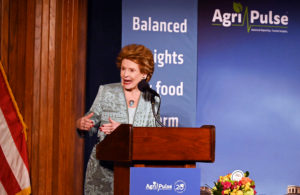 Chairwoman Debbie Stabenow (D-MI) stressed that the only way to get a farm bill is by building coalitions, not by pitting one title against another. “What does not work is playing politics of food assistance and nutrition against everything else in the farm bill,” said Stabenow.
Chairwoman Debbie Stabenow (D-MI) stressed that the only way to get a farm bill is by building coalitions, not by pitting one title against another. “What does not work is playing politics of food assistance and nutrition against everything else in the farm bill,” said Stabenow.